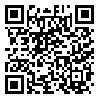Mon, Jun 2, 2025
[Archive]
Volume 21, Issue 88 (7-2013)
J Adv Med Biomed Res 2013, 21(88): 108-119 |
Back to browse issues page
Download citation:
BibTeX | RIS | EndNote | Medlars | ProCite | Reference Manager | RefWorks
Send citation to:



BibTeX | RIS | EndNote | Medlars | ProCite | Reference Manager | RefWorks
Send citation to:
Yosaee S, Gharamaleki A S, Zamani A, Khosravi A, jafarian K. Validation of Self-Reported Sleep against Actigraphy. J Adv Med Biomed Res 2013; 21 (88) :108-119
URL: http://journal.zums.ac.ir/article-1-2363-en.html
URL: http://journal.zums.ac.ir/article-1-2363-en.html
1- Dept. of Clinical Nutrition, School of Nutrition Sciences and Dietetic, Tehran University of Medical Sciences, Tehran, Iran
2- Center for Health Related Social & Behavioral Sciences Research, Shahroud University of Medical Sciences, Shahroud, Iran
3- Dept. of Clinical Nutrition, School of Nutrition Sciences and Dietetic, Tehran University of Medical Sciences, Tehran, Iran ,kdjafarian@sina.tums.ac.ir
2- Center for Health Related Social & Behavioral Sciences Research, Shahroud University of Medical Sciences, Shahroud, Iran
3- Dept. of Clinical Nutrition, School of Nutrition Sciences and Dietetic, Tehran University of Medical Sciences, Tehran, Iran ,
Abstract: (158098 Views)
Background and Objective: Sleep Diary is the most practical and cost-effective tool for evaluating sleep habits. However, measurement errors are common issues with self report methods in medical research. The aim of the present study was to evaluate a self- report method compared to Actigraph in assessing sleep patterns in children. Materials and Methods: This cross-sectional study was conducted on 270 children aged 6 to 9 years who were selected by multistage sampling in primary schools of Tehran. The sleep patterns during a week were measured using two methods of self- report and Actigraph. The parents were asked to report the sleep pattern of their children. Results: The results of the current study indicated that sleep duration determined through the self- report method was overestimated compared to Actigraph (P=0.001). Parents reported the onset of children sleep significantly earlier than Actigraph (P=0.001). There was no significant difference between self- report and Actigraph for wake -up time. Conclusion: The findings of this study illustrate low accuracy of self- report method for determining sleep duration and sleep onset in children. Although, self report is a valid method for measuring wake -up time in children, it has a low validity for assessing the other components of sleep pattern.
Type of Study: Clinical Trials |
Received: 2013/10/17 | Accepted: 2013/10/22 | Published: 2013/10/22
Received: 2013/10/17 | Accepted: 2013/10/22 | Published: 2013/10/22
Send email to the article author
| Rights and permissions | |
 |
This work is licensed under a Creative Commons Attribution-NonCommercial 4.0 International License. |




